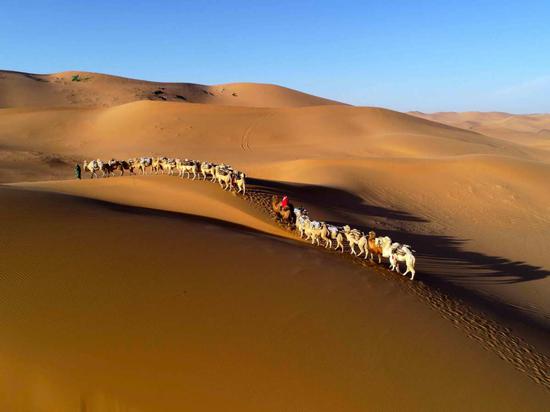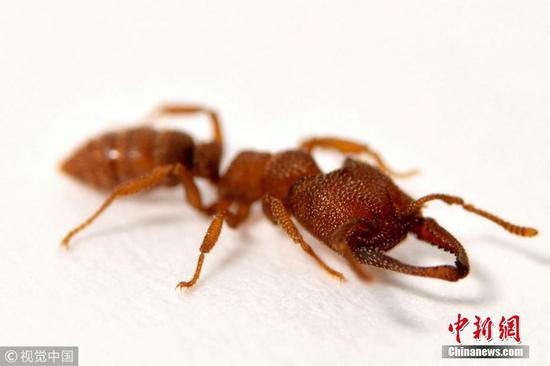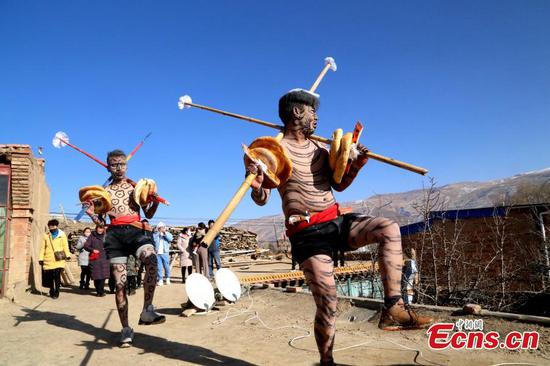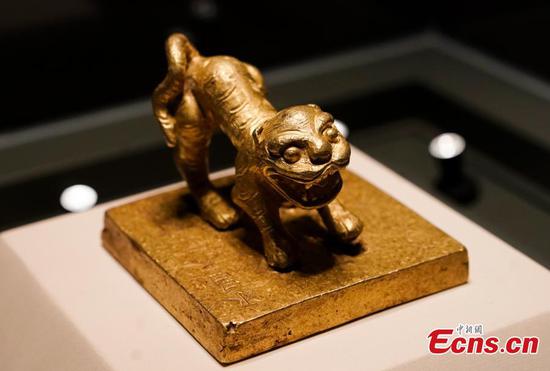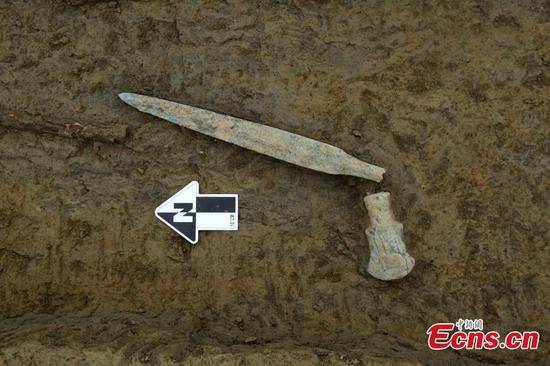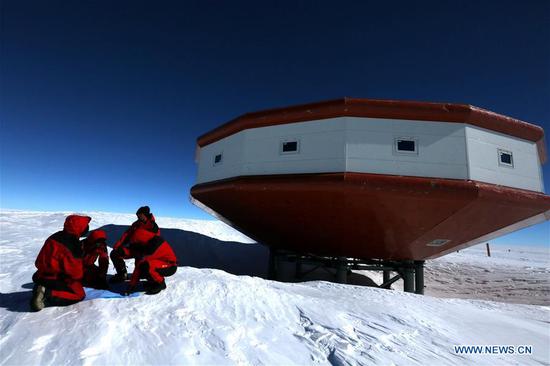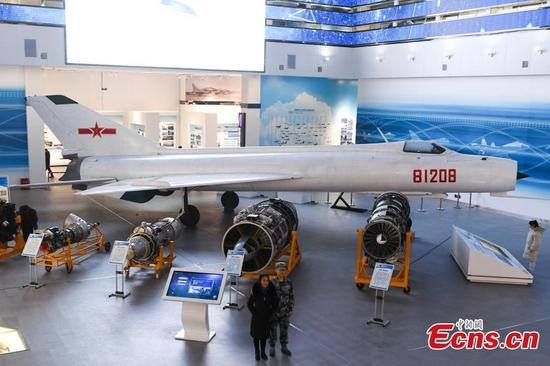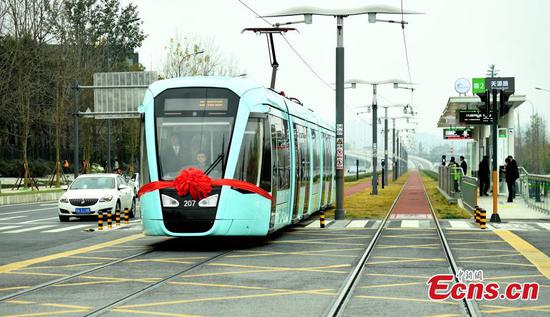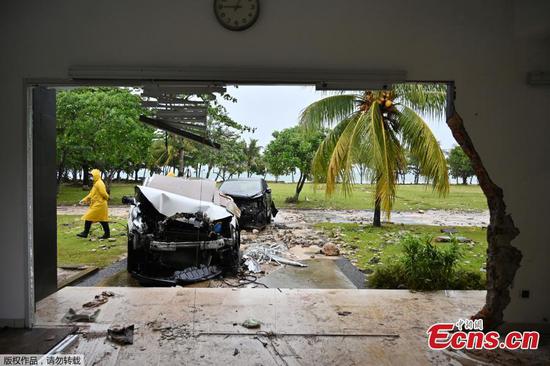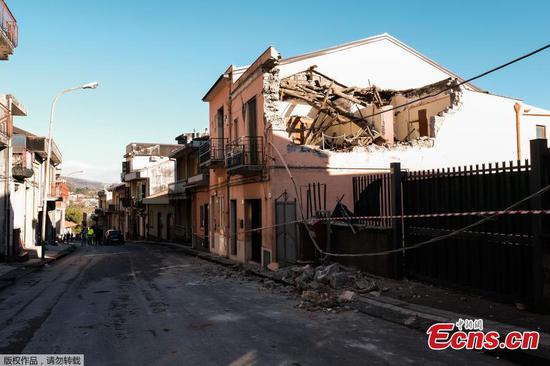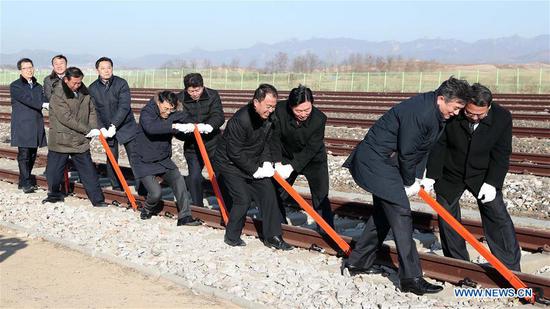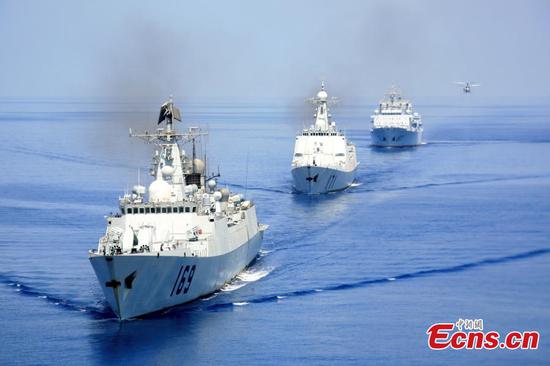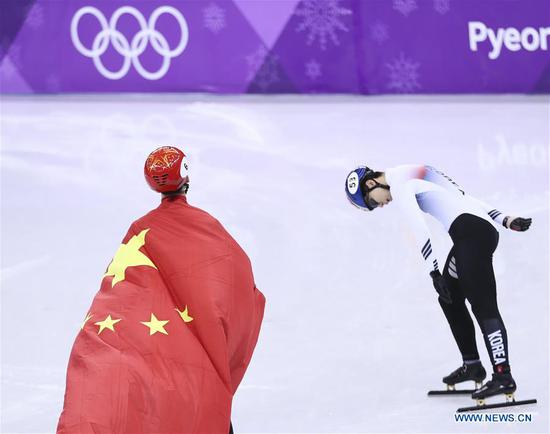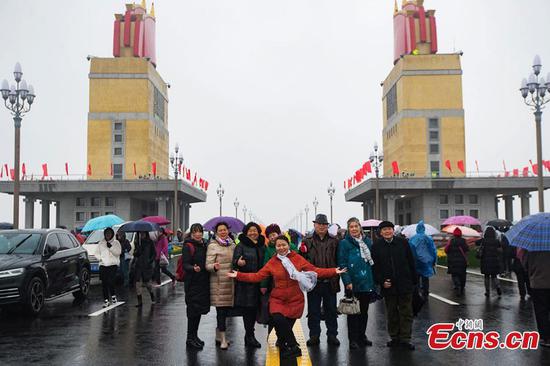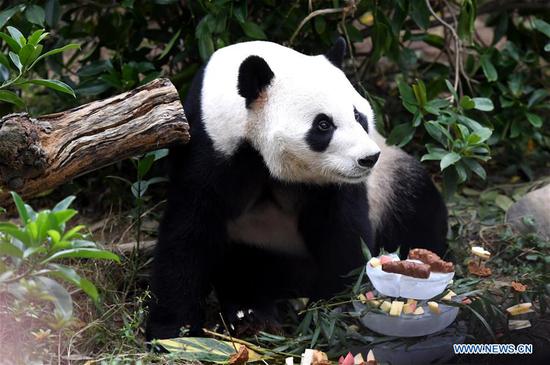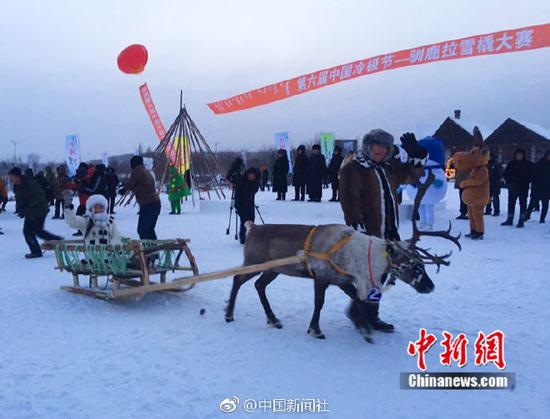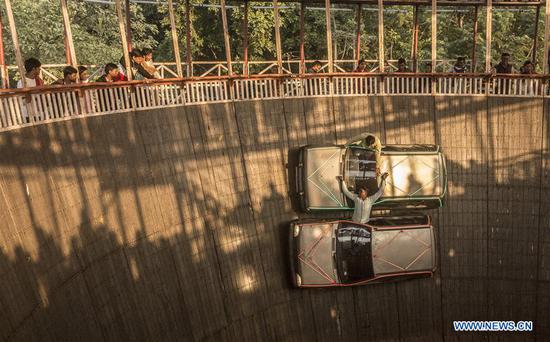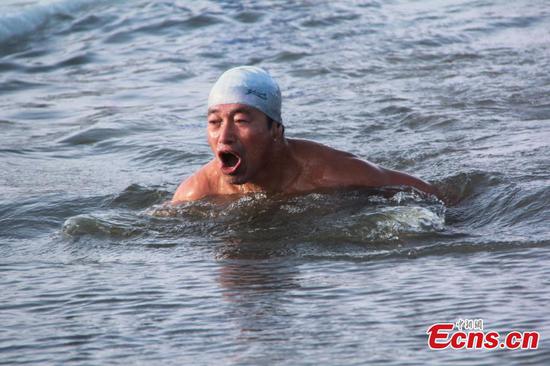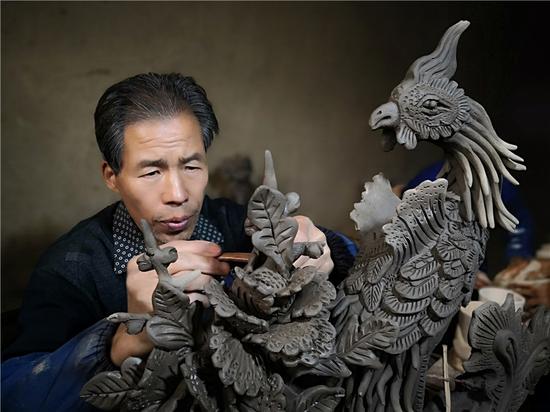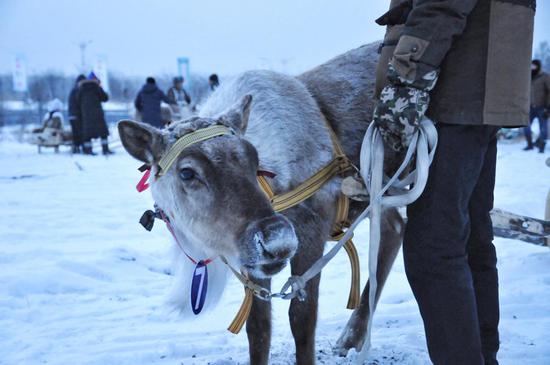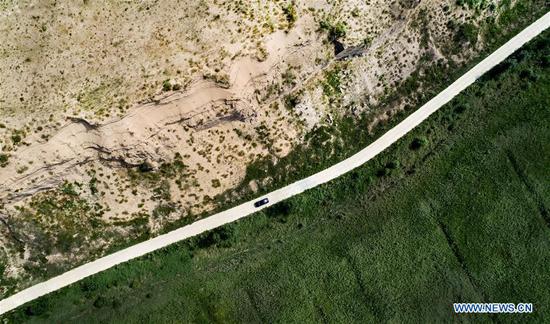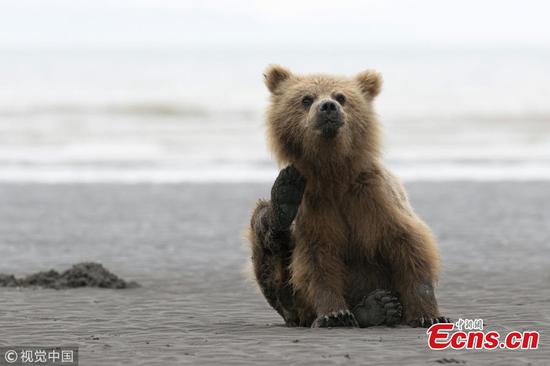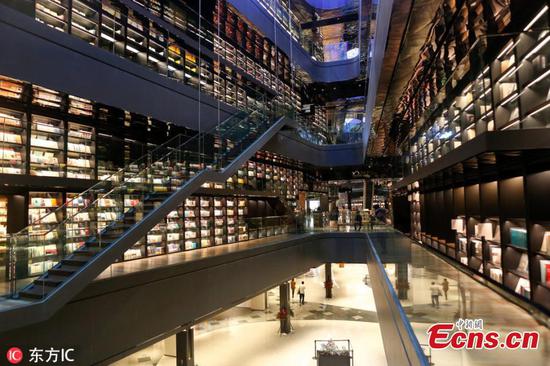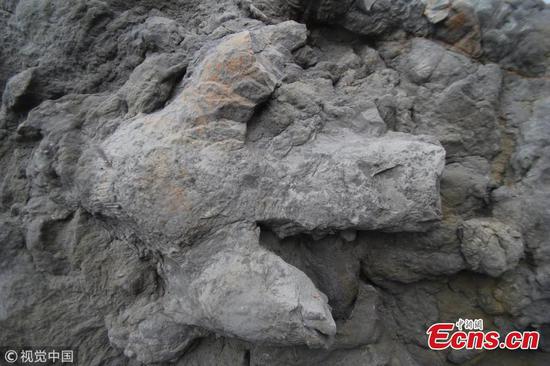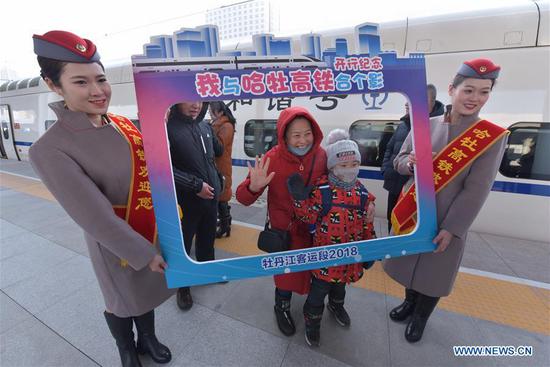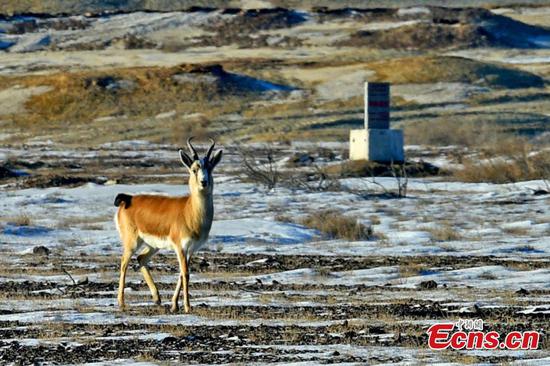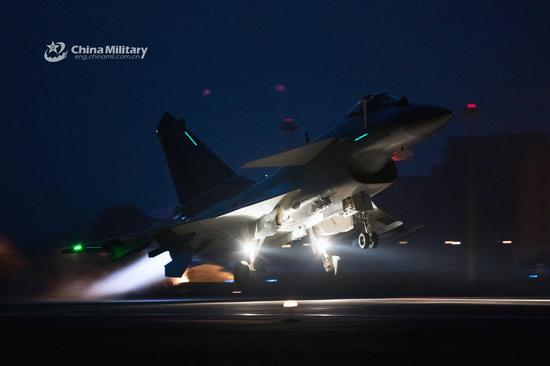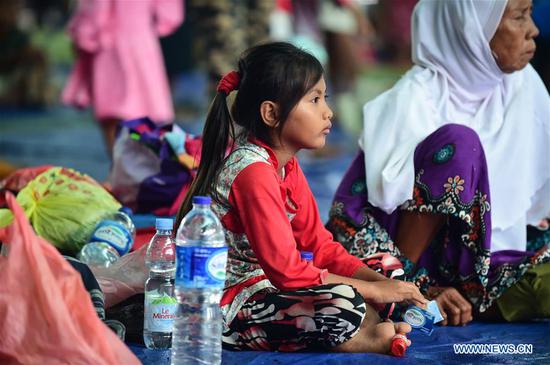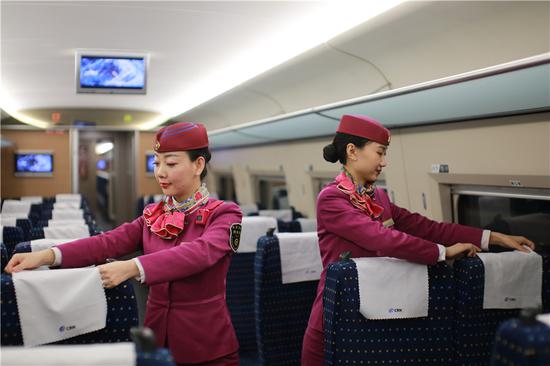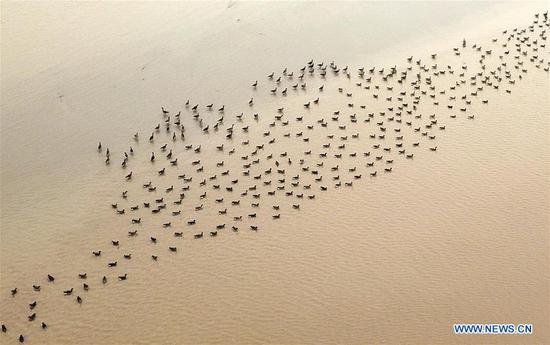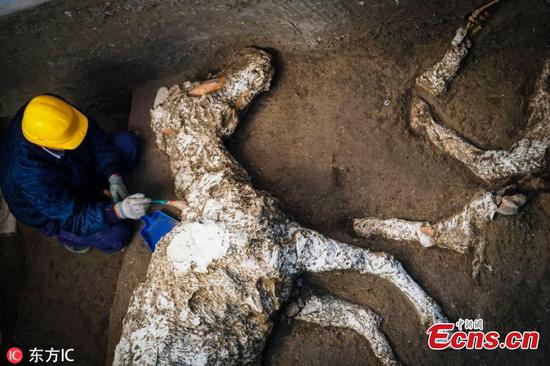
By Li Min/China Daily
One of the key geopolitical developments of recent times is the rapid growth of China's economic and political influence. China has already surpassed the United States in GDP as measured in purchasing power parity and has become a key variable of the modern international security architecture.
Besides, the US-led world order is unraveling and economic power is shifting from the West to the East. The almost 500 years of Western domination of international relations seems to be coming to an end. The rise of right-wing populism, growing role of identity politics, and the economic decline seen in the US and European Union member states all indicate the Western-led world order is facing a crisis.
On the other hand, Eurasia is becoming the center of an emerging new world order with states like China, India and Russia as key players.
Will the future world be peaceful or chaotic?
At the current geopolitical juncture, people would like to know which direction the world is heading toward. Will they witness a chaotic world with multiple conflicts and confrontations? Or, will they see a multipolar and multi-layered world without any hegemonic power but with basic rules acceptable to all?
In this context, the current Chinese foreign policy (and what it would be in the future) and China's relations with the US, the EU and Eurasian countries are one of the most debated issues.
To answer these questions, we have to refer to the kind of lifestyle Chinese have, and then reach a conclusion about the future in reference to China's past.
The sense of happiness, sense of gain and sense of satisfaction are all closely related to an increase in people's material wealth. For thousands of years, China has been an agricultural civilization. So the Chinese people have a deep understanding that to increase material wealth they have to sow the seed and harvest the crop for food grains, nurture plants and trees to get vegetables and fruits, and graze herds to get meat. Which makes the Chinese model of development endogenous.
The Western development model, in contrast, is exogenous. So people in the West wait for the opportune moment to reap the benefits. No wonder we hear a lot about traps such as the Thucydides' trap and Kindleberger's trap.
The significance of exploring a new place or society lies not only in geographical discovery, but more importantly in seeking opportunities for trading and economic development. The discovery of the New World and the Western explorers' journey to the East should be seen in this context. As such, when the Columbian exchange started benefiting capitalism, the nightmare for millions people began.
From trade to imperialist wars
The Columbian exchange began with spices, but quickly it extended to plants and trees and then the barbaric slave trade. Then it extended to the fight for the colonization of Africa and other newly explored lands. From colonization, it expanded to the fight for influence among imperialist powers, eventually leading to the two world wars. After the end of World War II, the West maintained its dominance over the East in nearly every sphere, and established many international mechanisms. China's 100 years of humiliation, however, began much earlier with the two Opium Wars in the mid-19th century. But it couldn't shake China's belief that all men are created equal.
Three decades after throwing off the colonial powers in 1949, China ventured on the path of reform and opening-up. That led to four decades of unprecedented economic growth.
The secret of China's rapid rise can be attributed to a peaceful and stable environment, investment in infrastructure, close regional and global cooperation, integration with global production and industrial chains, collaboration in trade, easier access to education and closer people-to-people exchanges.
One of the first initiatives China launched to deepen regional cooperation in Eurasia is the Shanghai Cooperation Organization. Founded in 1996, the Shanghai Five group helped China and Russia, Kazakhstan, Kyrgyzstan and Tajikistan to peacefully settle their border issues and build mechanisms to maintain good neighborly relations. And when all the Shanghai Five members agreed the group could be turned into a more useful regional organization, they founded the SCO, whose first summit was held in Shanghai in 2001.
SCO and NATO have little in common
I was present at the founding summit of the SCO. Since then, I have been following the SCO's development. Some people tend to compare the SCO with NATO. But there is little similarity between the two organizations, because NATO is a military alliance while the SCO essentially focuses on security, economy and human affairs.
The SCO has become the world's largest regional organization in terms of geographical area and population, covering three-fifths of Eurasia and nearly half of the global population. Referred by some as the "alliance of the East", the SCO has been the primary security pillar of the region. And given its wide reach, its geopolitical influence cannot be ignored.
Five years ago, President Xi Jinping proposed the Belt and Road Initiative based on Chinese philosophy. Since in the past, the Chinese people described the world order as tianxia, which literally means "all under the sun", Xi proposed to build a community with a shared future for humankind. This new type of international relations is different from the West-dominated international relations, because it is mutually beneficial in nature.
In his book Clash of Civilizations, Samuel Huntington has aptly described the West-dominated international relations of the past almost 500 years as relations among Western nations. Indeed, World War II resulted in the creation of bipolar world, but it transformed into a unipolar world after the disintegration of the Soviet Union.
International relations scholars got it wrong
Some international relations scholars, including Francis Fukuyama, argued that the end of the Cold War marked the end of humankind's socio-cultural evolution, and Western idea of liberal democracy is the final stage of the human development. But the unipolar moment lasted only about a decade. The US' grand strategy of liberal hegemony backfired in Afghanistan, and then in Iraq and Libya. And since the mid-2000s the West, the US in particular, has been facing a decline.
These developments along with the shift of economic power from the West to the East have resulted in what Fukuyama calls "identity politics" and resentment in his latest book, Identity: The Demand for Dignity and the Politics of Resentment. The election of Donald Trump as US president, Brexit, rising unilateralism, protectionism and right-wing forces, and the emergence of populism in Europe are all the signs of this new trend.
The traditional elites in the US have been seeking a policy aimed at maintaining the US' hegemonic role in the world. The recent US decisions-withdrawal from the Iran nuclear deal, use of economic sanctions, igniting trade frictions and the suggestion to repeal the Intermediate-Range Nuclear Forces Treaty-do not bode well for global stability and security. And the key topic of the US National Security Strategy report, released in December 2017, is to make renewed efforts to contain China and Russia, which were depicted as "revisionist" powers.
Washington is now targeting BRI
The US is also trying to discredit the Belt and Road Initiative. In his speech at the East Asia Summit in Singapore on Nov 14-15, US Vice-President Mike Pence directly accused China of creating debt traps for participant states in the Belt and Road programs, including Pakistan and Sri Lanka.
What is this debt trap, which the US says is also being created by the China-Pakistan Economic Corridor, which is part of the Belt and Road Initiative? What is the debt trap in Hambantota Port in Sri Lanka, which is part of the BRI?
Just two weeks ago, I met the official in charge of the Hambantota Port. He told me that the reporter who fabricated the Hambantota Port debt trap story did interview him. But after publication, he saw the story was totally different from what he had narrated to the reporter. Where did the fake news come from?
The Chinese believe the original purpose of the tianxia system is economic cooperation, to seek order, peace, harmony and justice. For 2,000 years Chinese people have believed that when you are poor, you should first discipline yourself, and when you get wealthy, you should bring benefits to others. That's why for the Belt and Road framework, Chinese leaders have set three principles: consultation, joint construction and sharing.
The initiative to establish the SCO is China's first attempt in response to the severe security situation and geo-structural fragmentation in Eurasia after the end of the Cold War. And the Belt and Road is China's initiative in response to the global economic downturn, the surge in anti-globalization and the lack of regional cooperation.
Beijing is not alone in defending globalization
China's rapid economic development, among other things, can be attributed to China's integration with the world economic system. Without globalization, there would be no development of China. But now that unilateralism and populism is gaining traction, globalization initiatives such as the Belt and Road have become the target of criticism from vested interests. These vested interests should realize that globalization is irreversible and China is just one of many countries willing to defend it.
It is therefore important that more and more people understand the significance of the Belt and Road Initiative and embrace it, especially as China has no intention of forcing its rules on the world.
The basic geographic coverage of the BRI and SCO are almost consistent, and their priorities of cooperation almost the same. As a regional organization, the SCO will be a platform for bilateral and multilateral cooperation, while the BRI will make an increasing number of big projects possible.
The author is a member of Pangoal's Academic Committee, and deputy secretary general of the Belt and Road Research Center, Chinese Academy of Social Sciences.









